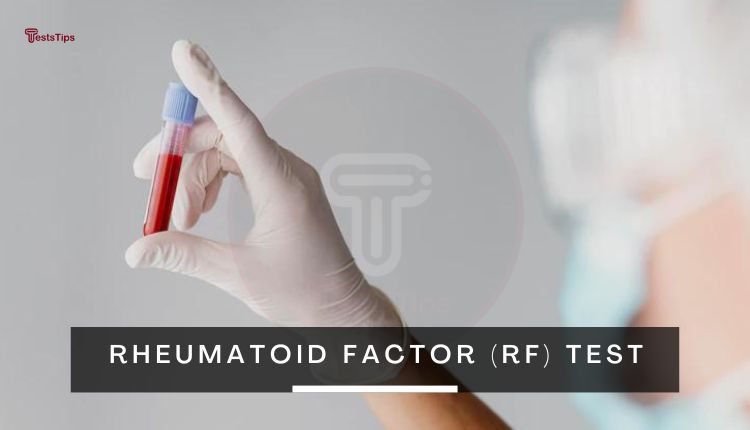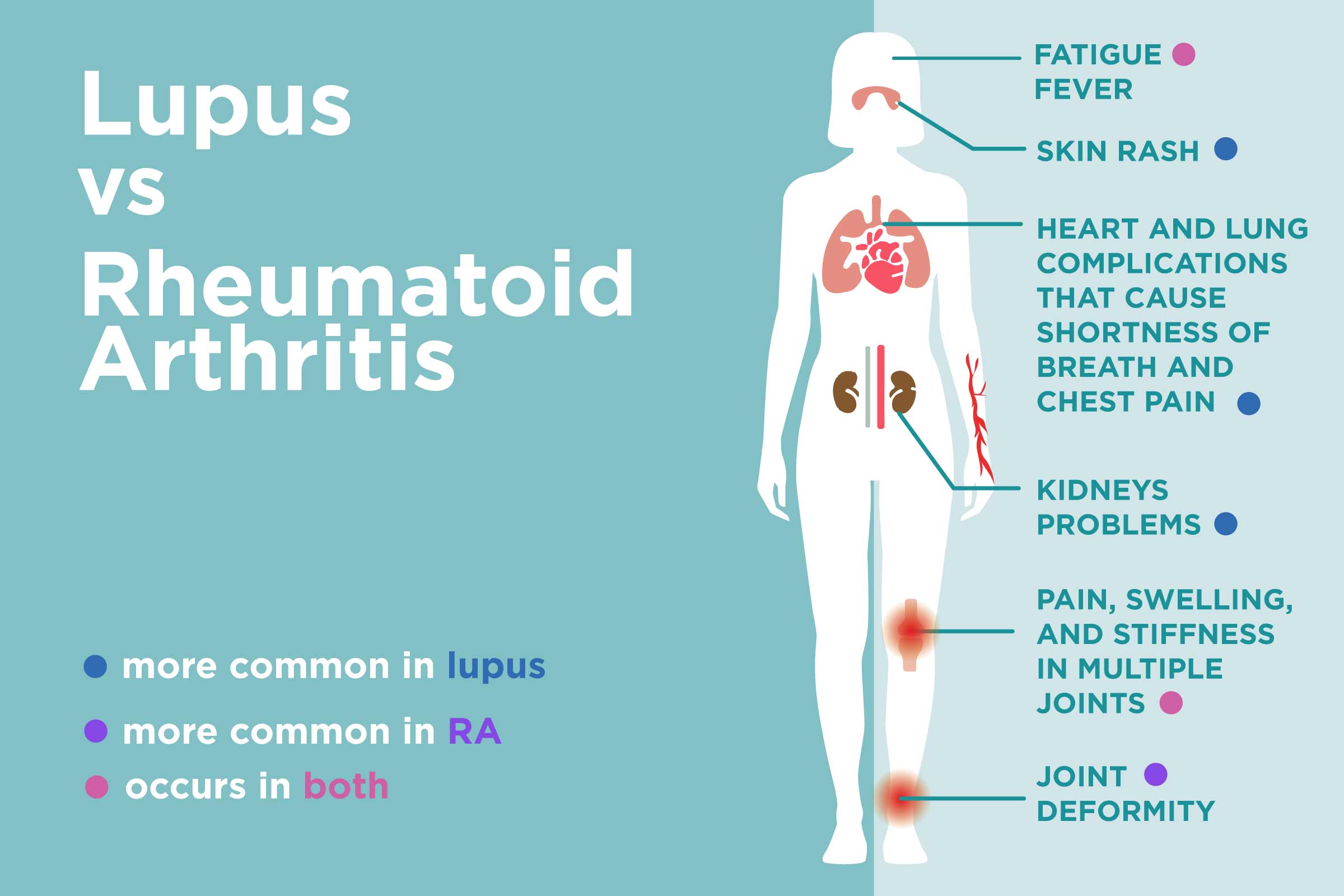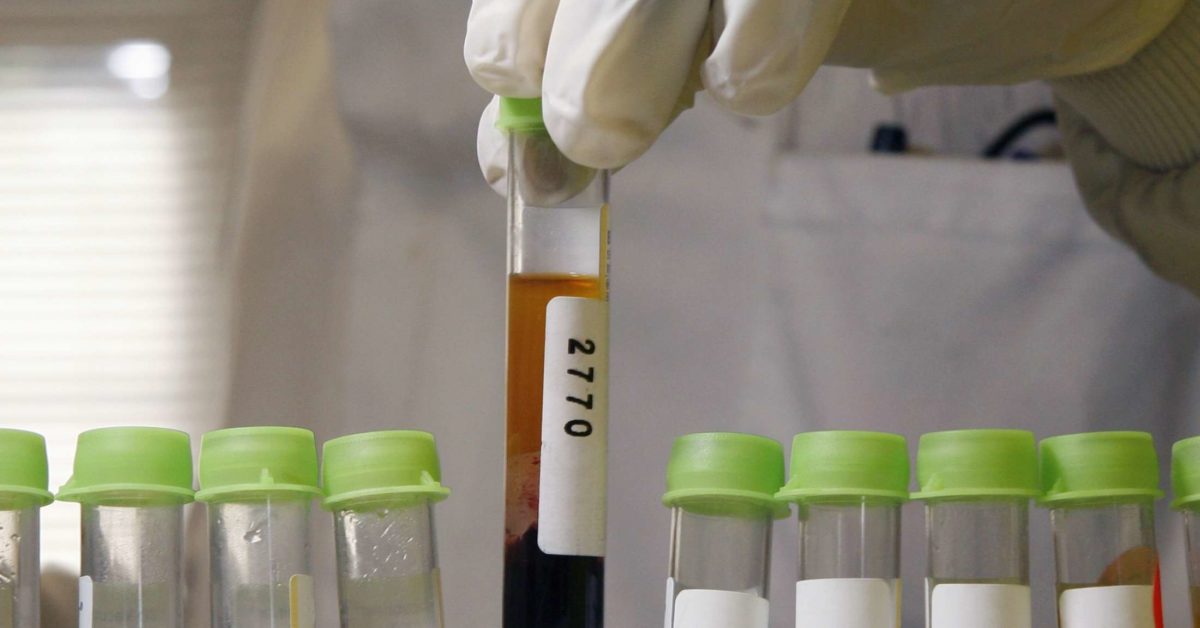Rheumatoid Factor (RF) Test. Preparation and Results
Rheumatoid Factor (RF) Test
Rheumatoid Factor (RF) Test is a blood test used to diagnose and monitor rheumatoid arthritis. Learn more about its importance and results meaning.

Table of Contents
Rheumatoid Factor (RF) Test is a blood test that measures the level of a substance called rheumatoid factors in the blood. The test can be used to diagnose and monitor people with rheumatoid arthritis, or as a screening tool for those at risk. This article provides an overview of the test, why it’s important, and what the results mean.
Introduction: What Is a Rheumatoid Factor (RF) Test?
The Rheumatoid Factor (RF) Test detects the presence of antibodies to citrullinated proteins (acr) that are produced in the body when it has an autoimmune disorder. It is a simple blood test that can be done in your doctor’s office or a laboratory.
People with an autoimmune disease have an increased level of blood rheumatoid factors proteins, while people without an autoimmune disease have very little or none at all.
The presence of these anti bodies can be detected with a simple blood test, and consequently, it can also be used to diagnose rheumatoid arthritis which is an autoimmune disease, by determining if there is any evidence of immune system response against citrullinated proteins caused by an autoimmune disorder in your body.
This test is usually done along with other tests to help diagnose and monitor rheumatoid arthritis.
What Are the Uses of a Rheumatoid Factor Test?
A rheumatoid factor (RF) test is used to:
- Detect and help diagnose rheumatoid arthritis.
- Monitor the progress of the disease and the effectiveness of treatment.
- Help diagnose other autoimmune diseases such as:
- lupus
- Sjogren’s syndrome
- Scleroderma.
- Juvenile idiopathic arthritis.
- Screen for other conditions such as:
- infectious diseases, such as: Hepatitis C, Tuberculosis, Endocarditis.
- Certain types of cancer, including leukemia.
- Certain types of inflammation.
- The results of this test can help doctors determine the right course of treatment for a patient.
It is important to note that a positive rheumatoid factor test does not necessarily indicate the presence of a disease, it is simply one part of a person’s medical history that helps doctors make a diagnosis.
Why do I need an Rheumatoid Factor (RF) Test?

Rheumatoid factor tests are important because they can help your doctor determine if you have RA (rheumatoid arthritis), or another autoimmune disorder. If you have rheumatoid arthritis symptoms, you may require an RF test. Symptoms usually start in the forearms, hands, and legs. They usually have a symmetric effect on the body; come and go.
Rheumatoid arthritis symptoms may include:
- Joints pain, swelling, and warmth
- Joint tenderness
- Joint stiffness lasting more than 30 minutes
- Fatigue
- Low fevers occur occasionally.
- Appetite loss
Outside-of-joint issues such as:
- Dry eyes or mouth.
- Firm lumps under the skin.
- Anemia.
This test is often combined with other tests to help in diagnosis of rheumatoid. These tests include a complete blood count and an erythrocyte sedimentation rate (ESR) test.
The Different Types of Rheumatoid Factor Tests Available

There are several different types of rheumatoid factor tests available, and each type has its own advantages and disadvantages. The most common types of RF tests are:
1-The latex agglutination test (qualitative)
The latex agglutination test uses latex particles coated with RF autoantibodies to measure the amount of RF in the sample. This test is relatively inexpensive, but it is not very accurate or sensitive.
2- Enzyme-linked immunosorbent assay (ELISA)
The enzyme-linked immunosorbent assay (ELISA) is more sensitive and accurate than the latex test, but it is also more expensive.
3- Nephelometry
The nephelometry test uses light to measure RF levels in the sample and can be used to detect very low levels of RF in the blood.
How Is a Rheumatoid Factor Testing Performed?

A rheumatoid factor (RF) test is a simple blood test that measures the amount of the RF antibody in the blood.
This test is usually done by drawing a sample of blood from a vein in the arm using a needle (venipuncture). The sample is then sent to a lab and analyzed to determine the level of RF antibodies in the blood. The results are usually available on the same day.
Preparation for the Test
It is important to be well-prepared before undergoing this test. The patient should fast for at least 8 hours prior to the test. This means that no food or drinks, other than water, should be consumed during this time.
Additionally, if the patient is taking any medications, it is important to tell the doctor about them as some medications may interfere with the results of the test. Furthermore, any other medical conditions should be discussed with the doctor in order to ensure an accurate result.
Risks Involved With a Rheumatoid Factor Test
A Rheumatoid Factor (RF) Test is a simple blood test with minimal risks associated with it. The most common risk associated with a rheumatoid factor test is pain in the area where the blood sample was taken. As with any blood test, there is always a risk of infection if the area is not properly cleaned.
Additionally, there is a risk of bruising or experiencing a hematoma at the site of the sample collection. However, these risks are rare and can be avoided by following proper procedures when collecting the sample.
In rare cases, there can be an allergic reaction to the antiseptic used to clean the area before the sample is taken. If you experience any unusual symptoms such as swelling, itching, or redness after the test, you should contact your doctor right away.
Rheumatoid Factor (RF) Test Results
The results of a rheumatoid factor test can tell you if you have an elevated amount of certain antibodies in your blood.
A positive (abnormal) result
If the test shows an elevated level of these antibodies, it is likely that you have an autoimmune disorder, and are in need of treatment immediately.
A negative (normal) result
If the test is negative, it means that the antibodies are not present and it is unlikely that you have an autoimmune disorders. However, it is important to note that a negative result does not necessarily mean that you do not have an autoimmune disorder.
It is possible to have a low level of rheumatoid factor and still have an autoimmune disorder, so further tests may be necessary to confirm a diagnosis.
Related tests
- C-Reactive Protein (CRP) Test
- Erythrocyte Sedimentation Rate (ESR)
- ANA (Antinuclear Antibody) Test
- Antineutrophil Cytoplasmic Antibodies (ANCA) Test
- CCP Antibody Test
- Cold Stimulation Test
- Synovial Fluid Analysis
A Rheumatoid Factor (RF) Test is a valuable diagnostic tool for detecting and monitoring rheumatoid arthritis. It is a simple blood test that can provide your doctor with valuable information about your condition. The test is safe, and accurate, and can help your doctor make an early diagnosis of RA. Ultimately, the rheumatoid factor test can help you get the best care and treatment for your condition.
